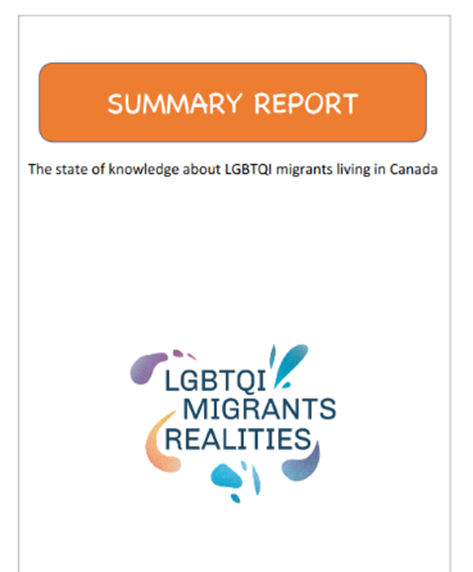The state of knowledge about LGBTQI migrants living in Canada in relation to the global LGBTQI rights agenda
Scoping review methodology was used to rapidly assess a broad range of literature while at the same time identify key knowledge strengths and gaps. A total of 241 publications included in this scoping review, with 56 from Canada, 74 from the US, 50 from elsewhere in the Global North and 61 from the Global South. LGBTQI people living in the Global South: Homophobic and transphobic violence faced by LGBTQI people living in the Global South is always situated within particular geo-political and regional contexts that are shaped by neo-liberalism, gender inequalities, colonial legacies, nationalisms, armed conflict, police violence, corruption, religious extremism, etc. LGBTQI migrants living in Canada: Most focused on LGBTQI refugees. Since 2014 there has been a shift in focus from refugee to precarious status, newcomers and immigrants and exploring how LGBTQI migrants navigated community belonging and structural barriers. LGBTQI migrants living in the US: Exploration of well-being especially with respect to HIV risk and prevention. For LGBTQI migrants, chosen families broke social isolation and fostered belonging. LGBTQI migrants also encounter multiple identity-based discriminations that blocked access to housing and health and social services, along with a fear, especially for those undocumented, of being profiled and detained by immigration officials. LGBTQI migrants living elsewhere in the Global North: Two areas of focus include SOGIE-based refugee claims and multiple discriminations by LGBTQI migrants, such as family / community rejection and barriers to access housing, employment, health and social services. Detention centres have a detrimental impact on the mental health of LGBTQI refugees, and increases their exposure to homophobic and transphobic violence. Key research methodologies and theories used: Qualitative research methods used include semi-structured interviews, focus groups, mixed methods and refugee case decisions. Some applied intervention, community-based and/or participatory research methodologies. Theories applied include ecological systems theory, minority stress model, multicultural feminist framework, the social determinants of health and especially intersectionality. Knowledge strengths and gaps: Researcher use of critical and participatory research methodologies as well as intersectionality theory are knowledge strengths. The IRB has implemented SOGIE-based guidelines for decision makers. There remains little knowledge about the realities of LGBTQI immigrants and migrants with precarious status. Need to develop anti-racist, anti-heterosexist and anti-cissexist service delivery and specialized services for LGBTQI migrants. Service providers should engage in trauma-informed and anti-oppressive practice that attends to the intersectional realities of LGBTQI migrants. Policy makers involved in developing Canada’s international role in LGBTQI human rights, should consider the complexities of LGBTQI realities in the Global South.

